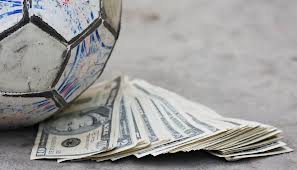July 22 – Half of the Premier League’s shirts will display a gambling company’s logo during the 2019-20 season, rekindling the debate about betting in sports.
According to The Guardian, Premier League clubs stand to earn a record £349.1 million from shirt sponsorship deals in the coming season, a rise of more than 10% compare to £315.6 million in 2018-19.
Ten of the 20 top flight clubs will display the branding of a gambling company, up from nine last season and the joint highest number ever, after signing deals worth a combined £69 million.
In the division below, the situation is even more prominent with 17 out of 24 club shirts showing a betting logo.
England has the most betting companies as shirt sponsors among the major European leagues. The next closest league is Spain’s La Liga.
At the start of the 2018/19 season nine out of the top-flight English football teams had advertising gambling brands as their main short sponsors in contrast to previous seasons when electronics companies dominated shirt sponsorship.
In 1998, not a single Premier League club’s shirt was sponsored by a bookmaker. The first was in 2002 when Fulham agreed to promote Betfair.
The use of Premier League shirt sponsorship to promote international brands in overseas markets via the league’s multiple television deals has raised ethical concerns in a number of countries. Most recently a Times report raised growing concerns in Kenya where children as young as eight were skipping school and using the money given to them to attend school to bet on football in what is an unregulated betting market.
With a major part of the Premier League’s international TV sales success being attributed to the demand from the Asian betting markets (as opposed to demand for a football product), clubs are forcing ethical issues as regards shirt sponsorship from gambling businesses higher up social agendas.
Britain also has the most liberal online gambling regulations of any European country but one company, Paddy Power, as part of its own – often spoof marketing strategy – says the situation is getting out of hand with regard to team shirts.
“Shirt sponsorship in football has gone too far; we accept that there is a role for sponsors around football, but the shirt should be sacred,” said Paddy Power’s marketing director, Victor Corcoran.
“So today we are calling on other sponsors to join the Save Our Shirt campaign, and give something back to the fans. As a sponsor, we know our place, and it’s not on your shirt.”
Contact the writer of this story at moc.l1714099365labto1714099365ofdlr1714099365owedi1714099365sni@w1714099365ahsra1714099365w.wer1714099365dna1714099365

